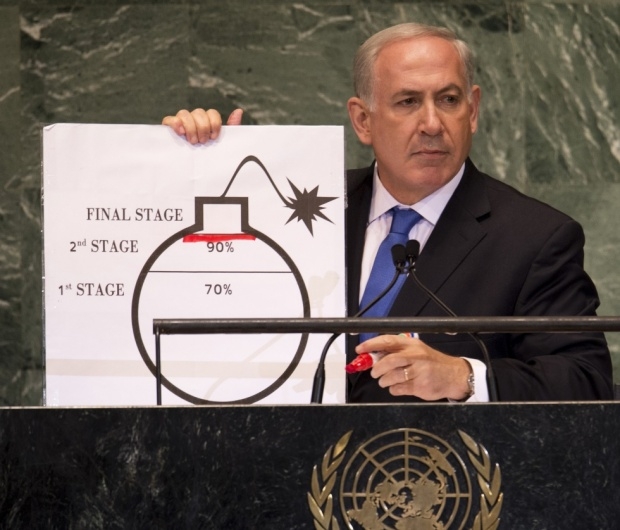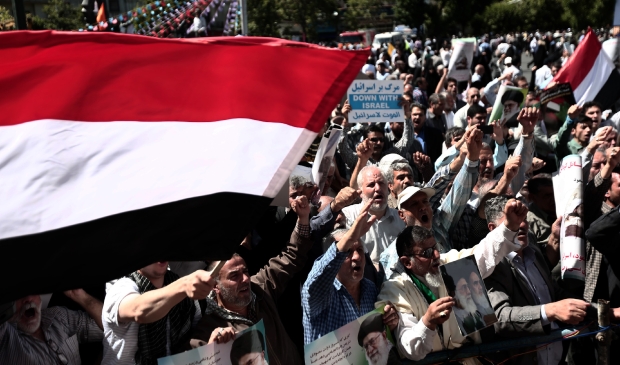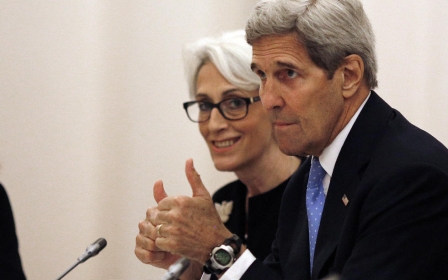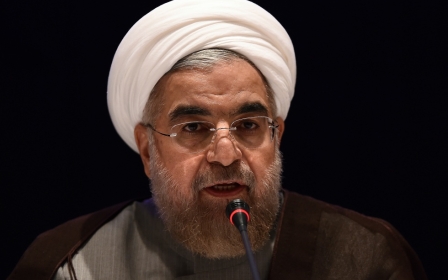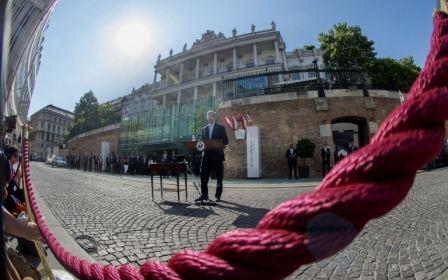Iran's nuclear deal: What it means for the region
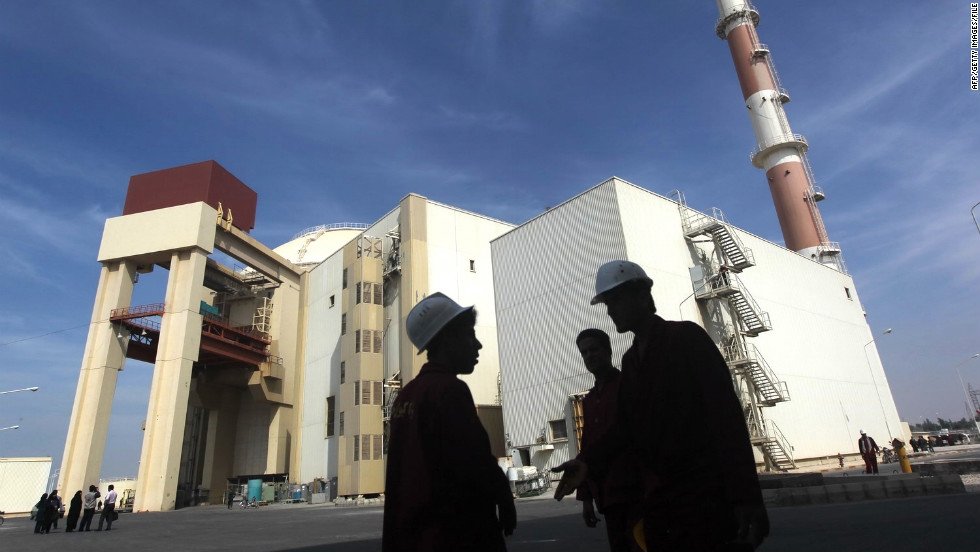
How might a US-Iran nuclear deal transform the balance of power in the Middle East? We asked eight anlaysts how a deal to rein in Iran's nuclear programme could impact the region's complex internal politics:
SAUDI ARABIA
Undoubtedly Iran's biggest foe in the region, Saudi Arabia has led the Gulf States in expressing concern about an impending deal. With fears remaining that a deal will not specify a short enough breakout time (the period required to produce material for one nuclear weapon), Saudi Arabia has embarked on a 'nuclear spending spree' ahead of any US deal with its fiercest rival. In June Riyadh inked nuclear deals worth $12 billion with Paris, sparking concerns that the Iran deal could lead to a new nuclear arms race. Experts like Gary Sick have sought to pour cold water over these theories, explaining that a nuclear escalation by Saudi Arabia would jeapordise its crucial security relationship with the US. However, a deal is likely to further complicate Riyadh's relations with its Gulf allies as well as with Washington:
"Any nuclear deal with Iran will put Saudi leaders in a difficult position as individual Gulf States such as Qatar and Oman will respond to the gradual normalization of relations with Tehran and expand their own economic and commercial ties. The Saudis will likely find it harder to rally the GCC around a common position on Iran and may feel compelled to pursue more unilateral policies as a result.
That said, the pragmatic aspect of Saudi foreign policy will ensure that the policy gap with the US does not widen too far, and will wait out the Obama administration's term of office in the hope that a new presidential administration will take a different approach."
Kristian Coates Ulrichsen, Kuwait fellow at Rice University's Baker Institute
ISRAEL
For years a vocal opponent of any Western rapprochement with Iran, Israeli Prime Minister Benjamin Netanyahu has come under increasing pressure as a deal moved closer. Opposition politicians have demanded the premier step down if a deal is reached, although polls indicate that Netanyahu still enjoys considerable public support on the issue. However, Netanyahu's biggest battle will be fought not in Tel Aviv but in Washington:
"Many will see this is a bad deal from Israel’s perspective. But the opposition will criticize Netanyahu for not finding ways to improve it; they will say he (Netanyahu) should have gone for more modest and achievable goals, given how important the negotiations were to Obama.
Initially, Netanyahu will focus on getting US public opinion to categorically reject the agreement to try and make a two-thirds majority against the agreement a reality. More broadly Netanyahu will try to fend off the opposition's accusations by scapegoating Obama's purported naivete and misunderstanding of the Middle East. He will probably also argue that his 'red line' affected Iran's behaviour and successfully deterred the Iranians from crossing it. His post-agreement strategy will be to continue trying to affect the Congress vote, focusing on identifying possible breaches of the deal by Iran and trying to get congress to snap the sanctions back into place.
Ultimately, Israel will find itself coming to terms with a new normal: the US and Israel’s interests are not always aligned.
Ofer Zalzberg, senior Middle East analyst at the International Crisis Group (ICG)
SYRIA
Iran's support for Syria's embattled president Bashar al-Assad over more than four years of bloody civil war has distanced it from the Western powers, which want to see Assad out of the picture. Although there have been indications that the West is softening its stance towards Assad, with the UN indicating that it is prepared to accept Assad as "part of the solution," analysts say that Iran could now be willing to climb down from its support for the president, making him one of the biggest losers in the deal:
"Iran understands that the US needs to reassure its regional allies in the Middle East - mainly Saudi Arabia - after the deal, or risk escalation in several proxy battlegrounds that could jeopardise the nuclear agreement. Inviting Arab leaders to Washington in May and the reassuring rhetoric that the US president has been using are not enough. Saudi Arabia and other regional allies, including Israel, expect tangible steps to be taken to reassure them.
The most critical reassurance can come from Syria. In that pursuit, Iran could allow a political transition that excludes Assad in order to sustain the nuclear deal with minimal regional confrontation and reaction. But letting go of Assad doesn't mean Iran won't have a stake in Syria's future. The geopolitical significance of Syria for Iran and its proxies - from Palestine to Iraq - means that there is a limit to how far Tehran is ready to withdraw from Syria.
So, this scenario is only meant to tame anti-Iran voices in the region as it provides a facade of Iranian goodwill while maintaining regional interests. The removal of Assad won't dissolve the Baathist military-economic complex but would possibly allow for more constructive diplomatic efforts.
The only alternative is further escalation in Syria's proxy war from both sides."
Ibrahim Halawi, a London-based researcher and a PhD candidate in Politics at Royal Holloway University of London
YEMEN
The war in Yemen has dragged on for over three months and killed thousands of people. Houthi militants, who led a 10-year insurgency in the country's north and often said to have Iranian backing, have been pounded by a fierce campaign of airstrikes unleashed by a Saudi-led coalition. With a nuclear deal poised to bring Iran in from the cold, analysts are optimistic about the implications for Yemen:
"The war in Yemen is no longer about Yemen. Even with a more responsible Iran, there will still have to be a larger understanding between Iran and Saudi Arabia.
But I hope a nuclear deal will end up having a positive influence – that is Iran has been asked to tell the Houthis to behave better as part of the deal. Iran has power over the Houthis, but not necessarily because they are commanding and controlling the group. Iran already has a lot of financial commitments in Syria, Lebanon and Iraq. It’s not in the best financial situation – it hasn’t even sent much money to the Houthis in the last few years. But if the Houthis listen to anyone, it will be Iran.
Ultimately, the deal is all about making Iran a more responsible international player. If you keep it isolated from the world, you can’t really ask it to behave. With the opening up, there is hope that they will engage in more talks."
Farea al-Muslimi, a visiting scholar at the Carnegie Middle East Center, where his research focuses on Yemeni and Gulf politics
TURKEY
Turkey, Iran's huge neighbour to the west, has publicly expressed its support for the nuclear deal. However, analysts say that behind the scenes a more complex game is being played:
"Turkey looms large in Saudi Arabia's imagination. Riyadh wants Turkey to act as a Sunni power and a counterweight to Iran. Thus, a deal is likely to increase Saudi Arabia’s need to get closer to Turkey in order to counter Iran's regional influence.
Turkey does not share this view entirely. Despite the warming relations between the two countries, the rapprochement between Saudi Arabia and Turkey has been experienced more in tone and style than in content. The gap between two countries' foreign policies towards some of the major regional issues, i.e. the coup in Egypt, remains unchanged. Moreover, Turkey has been supportive of a diplomatic solution since the start of the nuclear crisis.
Turkey, along with Brazil, attempted to help broker an agreement between the P5+1 and Iran on the nuclear issue in 2010, but to no avail.
Traditionally, Turkey and Iran have had simultaneously competitive and cooperative relationships. Unlike Saudi Arabia, Turkey doesn't reduce Iran to an implacable and menacing Shia regional rival. Similarly, unlike the West, Turkey doesn't reduce Iran to a nuclear bomb and theocratic radicalism. Besides political and security considerations, Turkey sees Iran as a vast market and a potential energy supplier for its ambitious goal of one day becoming an energy transit hub. Turkey thinks that a nuclear deal will prove beneficial on these two accounts.
Turkey also believes that the more Iran is brought into the system, and its sense of insecurity alleviated, the more responsible and cooperative it will become. But such an expectation might prove unfounded. The emboldened Iran might be more uncompromising and assertive, which in return will mean further deterioration of relations between Turkey and Iran.
Thus, Turkey sees opportunities to be exploited and threats to be managed in the case of a nuclear deal. This reading is well in line with the historical nature of relationships between Turkey and Iran: both cooperative and competitive at the same time."
Galip Dalay is research director of Istanbul-based Al Sharq Forum & senior associate fellow on Turkey and Kurdish Affairs at Al Jazeera Center for Studies
EGYPT
The struggling Egyptian stock market rose significantly over the weekend, buoyed by expectations of a nuclear deal. Some have speculated that Egypt's leaders will welcome the deal as a way to stabilise decades-long tensions with Iran. However, a deal could also upset Cairo's relations with a key ally:
"If a conclusive deal is reached over Iran’s nuclear programme, the repercussions for Egypt will be felt primarily via Cairo’s relations with its most important regional ally, Saudi Arabia.
A lifting of sanctions will enable Iran to economically sustain and possibly intensify its involvement in the Middle East’s various crises. This will likely result in an escalation of the regional rivalry between Tehran and Riyadh.
Saudi Arabia may thus call for greater support in this regard from Egypt, which has traditionally been a powerhouse in the Arab world. Given the amount and importance of Saudi economic and political backing for Egyptian President Abdel Fattah al-Sisi, such a call would be hard for him to resist.
However, Sisi would need to carefully balance his alliance with and commitments to Riyadh, with reluctance among Egyptians to get dragged into the region’s various quagmires, particularly given the myriad problems facing their own country."
Sharif Nashashibi, award-winning journalist and commentator on Arab affairs
BAHRAIN
Bahrain's somewhat isolated leadership has found a strong ally in Saudi Arabia, with Riyadh sending over 1,000 troops to the tiny Gulf monarchy to put down anti-government protests in 2011. However, it retains strong historic ties with Iran - many in the business community will be hoping to capitalise on these as a post-sanctions Iran emerges:
"The government will take the same line as the Saudis, in large part because Bahrain is a client state and the ruling family is beholden to Saudi Arabia to keep the economy afloat.
That line, predictably, will be a negative one. On the street, however, it should help to take the temperature down a notch. In a region which is beset with sectarian violence, the deal should work toward easing tensions. As well as this, the gradual lifting of sanctions will bring some economic benefit to Bahrain, and overall that will have a positive impact."
Bill Law, award-winning freelance journalist focusing on the Gulf
"From a political perspective a comprehensive nuclear deal could complicate the progress of any negotiated settlement between the Bahraini government and the Shia opposition. The Bahraini government share Saudi Arabia's fear of a resurgent Iran consolidating its influence and hegemony in the region, particularly in countries that share its Shia faith. push back against perceived Iranian influence could further widen the gulf between the two sides.
From an economic standpoint, however, there are significant opportunities that Bahrain could leverage as Iran emerges from economic isolation. Capitalising on Bahrain's strong social and cultural links with Iran, trade, investment and transport links could grow. Bahrain could also secure much needed natural gas supplies from Iran that are needed to power its aluminium industry (10 per cent of GDP). However any economic and business developments may be held hostage to Saudi policy."
Rosamund de Sybel, director of K2 Intelligence, focusing on Bahrain and the Gulf
New MEE newsletter: Jerusalem Dispatch
Sign up to get the latest insights and analysis on Israel-Palestine, alongside Turkey Unpacked and other MEE newsletters
Middle East Eye delivers independent and unrivalled coverage and analysis of the Middle East, North Africa and beyond. To learn more about republishing this content and the associated fees, please fill out this form. More about MEE can be found here.


